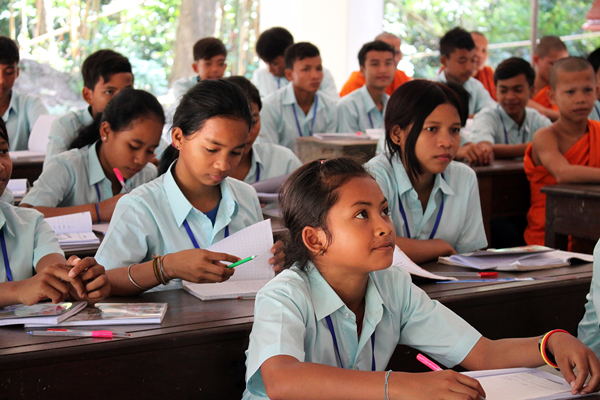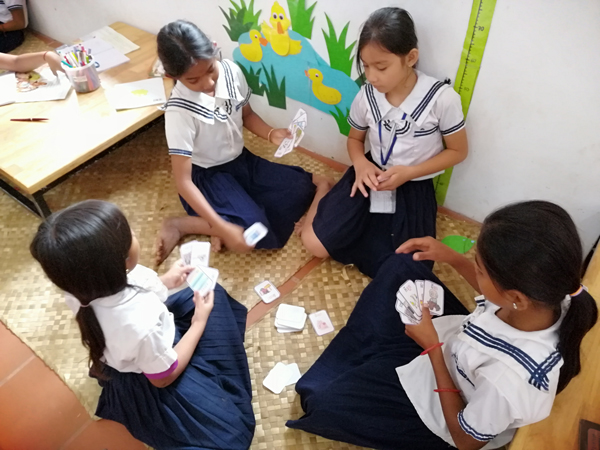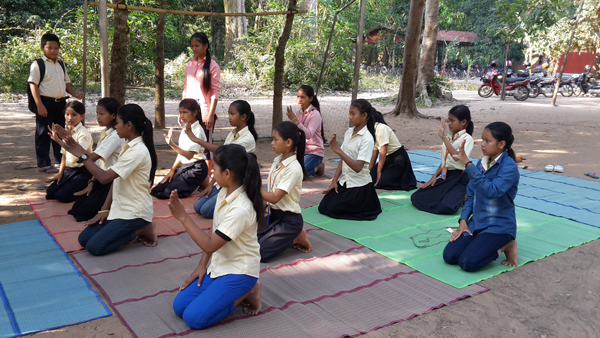
The Bayon School offers free, quality primary education that takes into account the social difficulties of the students. After primary school, a follow-up and support programme has been set up so that the children may continue their education through secondary school, even through to university for some of them, with the will to take those children we help to the maximum of their capacities.
Compensating the deficiencies of the public education system for underprivileged student
Of the school teachers had only a secondary school diploma or less in 2013.
Following its destruction by the Khmer Rouge with the extermination of educated people, and despite reconstruction efforts from the 1980s onwards, Cambodia’s education system has now fallen seriously behind.
Source : UNESCO, 2014
%
Average primary school dropout rate in 2017 in Cambodia.
Despite satisfactory coverage (nearly 95%), many students drop out of elementary school.
Source : UNESCO, 2018
%
Completion rate in lower secondary education (junior high school equivalent) in Cambodia in 2017.
Source : UNESCO, 2014
%
Of Cambodian children between 5 and 14 years old were working in 2015. Indeed, many families do not appreciate the benefits of educating their children and prefer to rely on the short-term solution of the income brought by their work. This problem is even more important in an area such as the Angkor temples, where the attraction of tourism has favored the development of economic activities that do not require any qualifications and that children can carry out with or in place of their parents.
Source : UNICEF, 2016
Our vision: Quality education for underprivileged children and young people living in the Angkor temple region
The Bayon School offers students a completely free education so that money does not become a barrier to schooling for children from disadvantaged families. All the necessary school materials are made available to primary and secondary students.
The primary school children are fed twice a day (breakfast and lunch) which further contributes to reducing their families’ living expenses. A monthly allowance is also distributed to each secondary school student to cover their tuition fees in Siem Reap’s public middle and high schools.
It is with the same goal that the Bayon School has been running a kindergarten class since 2017; it not only improves the future academic results of the students by preparing them for primary school, but it also financially relieves the families. By enrolling their children in school as early as possible, the families reduce their costs and have more time for work.
Our social team is very much involved in the learning process, supporting the students and limiting the impact of their disadvantaged socio-economical background. They are the first port of call for the teaching team to discuss social and academic difficulties. At the secondary level, they are very active, monitoring the academic results and attendance of the students followed by the Bayon School in the public middle and high schools.
Individualized support lessons to help students in difficulty are set up to improve their academic results and thus limit their dropping out.
Finally, primary pupils from Grade 1 upwards are initiated in arts and culture, to which they do not have access through their families with art classes, traditional dance and puppet classes as well as cultural trips. Educational games and books are made available to them in the library to encourage them to read.
Strong emphasis on vocational guidance and support of the students towards higher education to give them a chance to break out of the poverty cycle
At the Bayon School, we have introduced specific lessons to enable the students to acquire the skills they need for higher education and their future profession:
- English, taught in Grades 4, 5 and 6 by a qualified teacher.
- Computer science, taught in Grades 4, 5 and 6 to familiarize them with the computer.
Secondary school students are guided in their professional orientation. They benefit from personal development courses and we also organize trade meetings with qualified professionals and career forums to introduce them to the range of possible career opportunities, in partnership with other local NGOs such as Pour un Sourire d’Enfant, Sala Baï or Egbok.
Finally, every year we provide about twenty scholarships to students who demonstrate strong motivation to continue their studies at university.
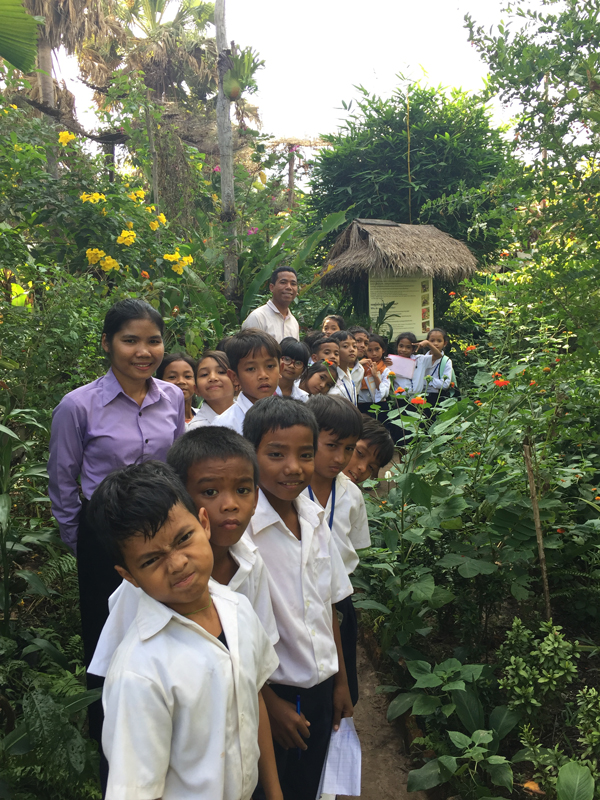
Our goal: Successfully make the transition from a teacher-centered teaching system to a student-centered pedagogy
In 2018, we welcomed two education experts to the Bayon School for an audit of our teaching practices. They encouraged us to rethink our pedagogical model and we have since been working to implement their recommendations.
Learning methods in public schools in Cambodia rely heavily on choral rehearsal, the lesson given by the teacher and the reward. Interactivity, group work and individual support are almost non-existant. These methods were previously used by primary school teachers. From now on, we try to take into account the specific needs of each student, depending onhis/her individual background, situation and social difficulties, drawing on the theory of empowerment. The social team is involved with the teachers to share the particular situations of each student.
We have also chosen to reduce the number of students per class in order to privilege quality over quantity and to facilitate this personalized education.
The arts and sports classes are part of this student-centered approach, by stimulating the student’s emotional intelligence, creativity, initiative, critical thinking, self-confidence, and through practical work.
At the Bayon School, all the teachers are qualified with full-time contracts, which allows them to devote time to the preparation of their lessons, training, and the update of pedagogical content. Continuing education is strongly promoted, both internally (through sharing best practices or mentoring) and externally.
Finally, we are committed to involving the parents in the educational community and the life of the primary school so that they can feel part of the school and motivate their children in their studies. Until now, the school has reached out to parents through annual visits and various social programs. It is now time for the parents to come to the school by participating in class councils for example or the implementation of educational and health workshops for example.
blog
Keep up with our news
A new playground at primary school
Last April saw the opening of a new playground at primary school, much to the delight of the 206...
Hugo and Morgane committed to education
At the beginning of May, The Bayon family welcomed Morgane and Hugo, both on a one-year civic...
A square named after Élodie, in memory of a precious commitment
A square named Élodie, in memory of a precious commitment last April, the town of Ouistreham...
